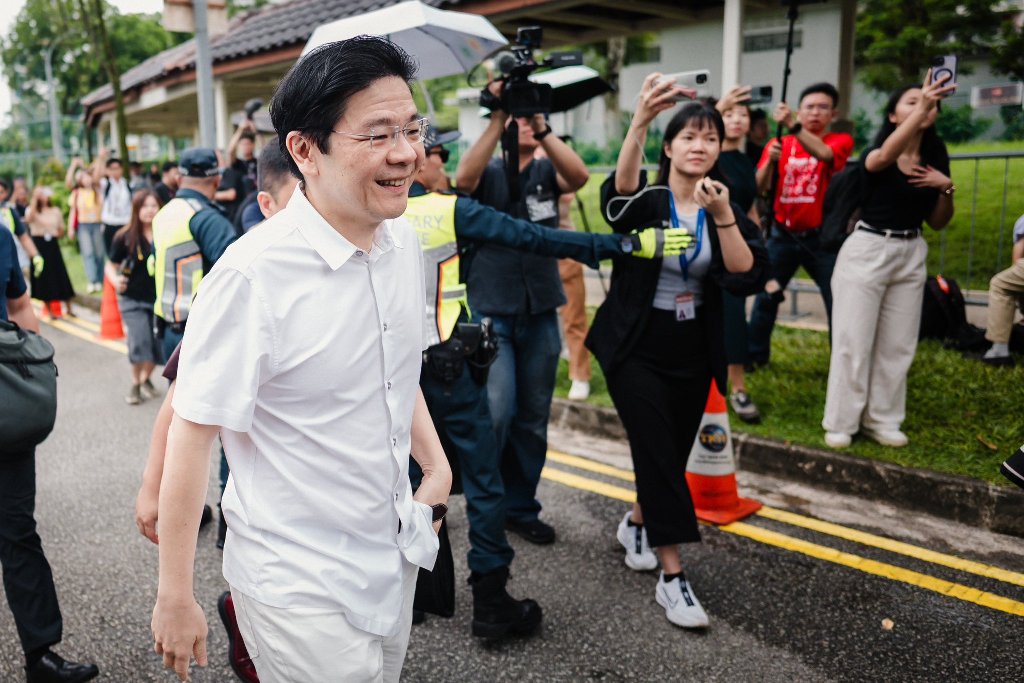A total of 2,758,846 registered Singaporean voters are heading into polling booths for the 19th General Election 2025 to elect the next government, which is set to face strong global headwinds caused by trade tariffs announced by the United States, the biggest trading partner of the Southeast Asian city-state.

Voting began at 8 am on Saturday, May 3, at 1,240 stations set up island-wide, with polling polling booths set to be be closed at 8 pm and results expected late at night.
Prime Minister Lawrence Wong, completing nearly a year in office, is seeking a fresh mandate for the ruling People’s Action Party (PAP), which has governed the city-state since independence and steered its development into a global financial hub.
“Singapore is in the cross road between US and China trade war,” a diplomatic source said, adding that the trade focused island has strong diplomatic and economic relations with both the giant economies, a fall off from which will affect its future progress.
ALSO READ: GE2025: A crucial test for PAP and new Singapore PM Lawrence Wong
This is Singapore’s 19th election since the first general election in 1948 and 14th since its independence in 1965.
Multinational corporations and Asian businesses, using Singapore as a springboard into Asian markets, are closely monitoring GE2025, the source said.
A total of 92 out of 97 parliamentary seats are being contested by 211 candidates across various political parties. Cost of living, housing, and the rising number of foreign workers have emerged as key election issues.
ALSO READ: Singapore-US trade talks focus on strengthening ties despite 10 percent tariff
Singapore’s total population stood at approximately 6.04 million as of June 2024, a 2 percent increase from the previous year, mainly driven by the growth in the non-resident population, according to the Population-in-Brief report.
On April 23, nomination day, PAP won five seats uncontested in the Marine Parade-Braddell Heights Group Representation Constituency (GRC). Under Singapore’s electoral system, GRCs are similar to party block voting systems in some other countries.
More than 18,000 Singaporeans overseas have also begun voting at Singapore missions in Dubai, London, Washington, New York and San Francisco, which opened their polling stations at 8 am local time on May 2, according to The Straits Times.
Eleven political parties and two independents are contesting in 32 constituencies. The PAP is fielding candidates in all constituencies, while the opposition Workers’ Party (WP) is contesting 26 seats in eight constituencies. The Progress Singapore Party (PSP) has fielded 13 candidates across six constituencies.
Other parties in the fray include the Singapore People’s Party (SPP), Singapore Democratic Party (SDP), People’s Power Party (PPP), People’s Alliance for Reform (PAR), Red Dot United (RDU), National Solidarity Party (NSP), Singapore United Party (SUP), and Singapore Democratic Alliance (SDA).


